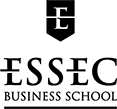Our thematic selections - Friday 18 November 2022
Sources in geopolitics

Definition and reference material
Geopolitics have been defined as the study of geographical parameters that can influence power relationships in international relations. Having emerged as a science in the 19th century at the same time as economics, sociology and psychology, geopolitics has evolved during the 20th century, successively marked by imperialist confrontations, the Cold War and multilateralism. The discipline has recently been renewed with the relative fading of inter-state confrontations vis-à-vis other power relationships, whose fluctuations are linked to the accelerated global circulation of innovation and capital. According to Yves Lacoste, "Geopolitics means any power rivalry over or for territory".
The sources selected below are mainly in English or bilingual, in order to facilitate their...
Read MoreRate this content
Our thematic selections - Thursday 13 October 2022
Sustainability and ecological transition

The sustainability of our social model has become a major issue in the face of the consequences of global warming and the global crisis, both environmental and social. You will find below a selection of documentary resources available at ESSEC's K-lab or freely accessible on the internet. This will allow you to approach the scientific findings of the crisis and its consequences on the economy and society. It will also focus on resources intended for higher education. This first approach should be completed by your own research. This selection of resources has been put together with the help of Together and the students of the collective ESSEC Transition.
K-lab resources
Books
You will find many books on these topics at the Learning Center, either by going directly to the shelves VII...
Read MoreRate this content
Our thematic selections - Monday 09 May 2022
Diversity, equity, inclusion

The topic of diversity, equity and inclusion is a major issue for ESSEC, higher education and society. The following is a selection of resources developed by the ESSEC K-lab, in partnership with the Equality, Diversity and Inclusion Center for ESSEC. It does not claim to be exhaustive, and is based on a few examples that are not representative of the richness of the subject. It is a simple entry point for your specific research and reflections, which will go much further in terms of precision in accordance with your information needs.
1/ Background
Diversity, equité, inclusion : what are we talking about?
Definitions (from Diversity in the workforce, current issues and emerging trends, edited by Marilyn Y. Byrd and Chaunda L. Scott, Routledge...
Read MoreRate this content
How do I... - Friday 06 May 2022
Evaluating information (part 2) : Awareness of Filter Bubbles and Media Economics

(Part 1 : Avoid cognitive biases and measure the reliability and relevance of the information)
The general media accessible to the general public, which you consult both for daily information and to feed your academic work, are almost all based on a liberal conception of information. Indispensable to the exercise of judgment by individuals in democracies and market economies, information must be accurate and verifiable. Its main disqualifying criterion is therefore false news, rumors.
However, we can qualify this as a somewhat idealized conception. Information is indeed not treated in the same way depending on whether it covers subjects that are important or not for the dominant economic and political interests in our societies....
Read MoreRate this content
How do I... - Friday 29 April 2022
Evaluating information (part 1): Avoid cognitive biases and measure the reliability and relevance of the information

During your documentary research and in general to learn about a field, you will constantly be required to evaluate the information. This is a key step in the documentary methodological approach, which can occur at different times during your research, depending on whether you already have the information available or whether it is the result of a whole research process that you have implemented.
In the first case, you start from a corpus that is already known, and need to verify its value: can you reasonably rely on the information you have to carry out your analyses, make your recommendations, present your syntheses, presentations, etc.? The methodological framework for identifying and reducing cognitive biases will then be your first tool for evaluating the information.
Being informed represents an effort, has a cost in terms of time and reflection in particular....




Comment this content 0 comments